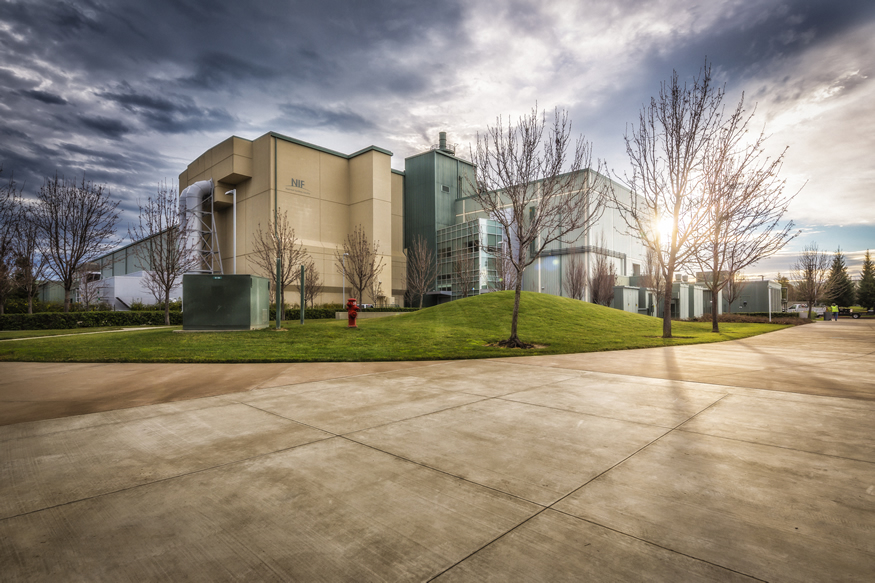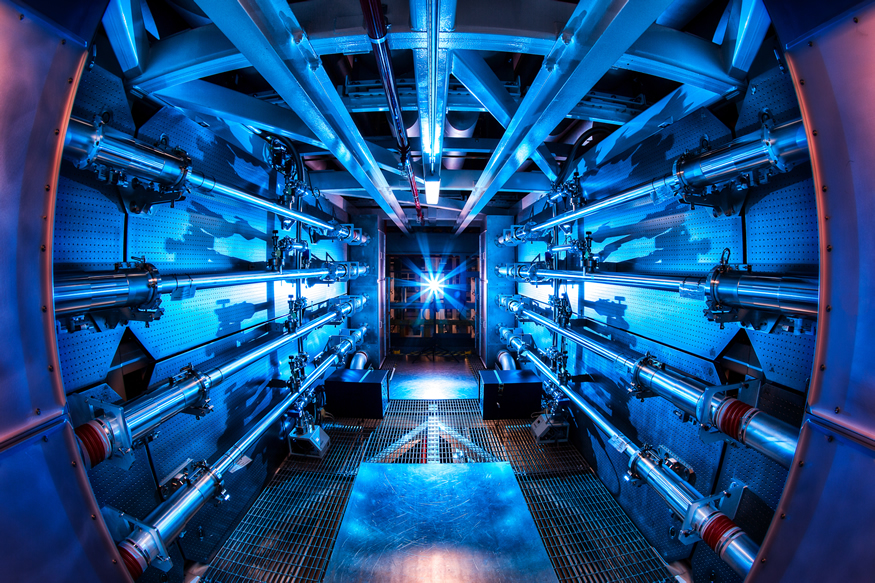Nicholas Hawker of First Light Fusion and Ian Chapman of UKAEA. (Photo: UKAEA)
Ignition and net gain at Lawrence Livermore National Laboratory’s National Ignition Facility (NIF) in December 2022 focused global attention on the prospects of inertial fusion energy (IFE). First Light Fusion and the U.K. Atomic Energy Authority (UKAEA) acknowledged the achievement as they announced plans on January 25 to design and build a demonstration facility known as Machine 4 at UKAEA’s Culham Campus in Oxford, U.K., using First Light’s “projectile approach” to IFE. Construction is expected to begin in 2024, and operations are “likely to commence” in 2027.
NIF in winter (Photo: LLNL)
“Star Power” is the name 60 Minutes producers gave their interpretation of the recent experiment at the National Ignition Facility (NIF) that achieved fusion ignition and net gain. Views from inside Lawrence Livermore National Laboratory captured by TV cameras and aired Sunday, January 15—of some of NIF’s 192 lasers, banks of capacitors, target assembly labs, and even the remains of the target assembly blasted in the December 5 breakthrough—are well worth the watch for those of us who are unlikely to visit the site in person.
A color-enhanced image of the inside of a NIF preamplifier support structure. (Image: LLNL/Damien Jemison)
On December 5, researchers at the National Ignition Facility (NIF) at Lawrence Livermore National Laboratory achieved fusion energy breakeven. It was a gain for stockpile stewardship that also—as headlines gushed prior to the Department of Energy’s December 13 announcement—boosted the prospects of inertial fusion energy (IFE). The timing of the landmark achievement may have been especially welcome to private fusion companies with inertial or hybrid magneto-inertial confinement concepts, because it occurred as the DOE was getting ready to consider applications for $50 million in funding for fusion pilot plant design work.




